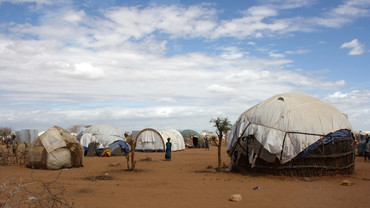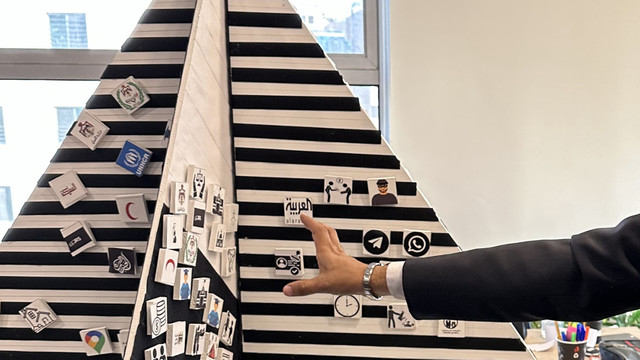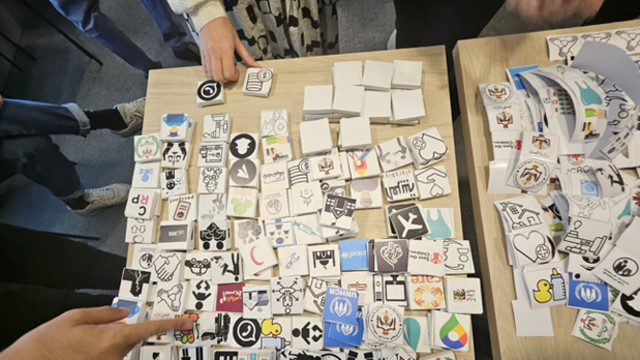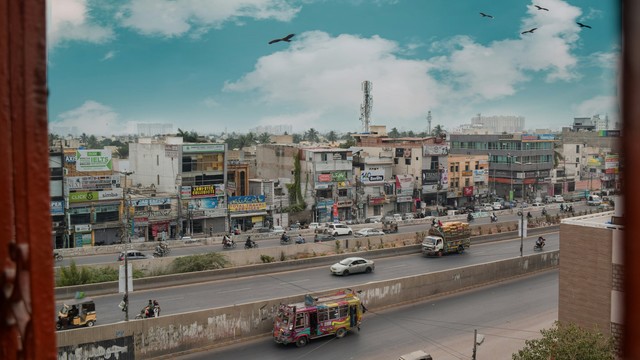City residents and urban refugees: from shared living to shared futures
Tools used to document the impacts of the COVID-19 pandemic in one of Nairobi's largest informal settlements are also being used to chart how the lockdowns disproportionately affected displaced people.


Residents in Mathare lack access to adequate housing, sanitation, water and other basic services. Understanding how to respond to the movement of large numbers of displaced people into these areas requires working with partners at the grassroots and city levels who are familiar with the infrastructure and services (Photo: copyright Muungano wa Wanavijiji)
COVID-19’s relentless progression has exacerbated the vulnerabilities facing women, children and men living in informal settlements all over the world. Local grassroots organisations across the global South quickly responded to support their communities, making sure they had the basics in lockdown.
Under-resourced but with a clear understanding of local needs and priorities, their efforts varied from providing handwashing stations and distributing food parcels, to preparing class action lawsuits to fight evictions.
One key group traditionally left out from local networks’ attention were the refugees living in these areas.
Among the community-based organisations quick to act was Slum Dwellers International (SDI) DI Kenya, a grassroots organisation with a long history of working on urban rights. They work closely with local residents to ensure they are involved in city plans to improve Nairobi’s informal settlements.
Jack Makau, SDI Kenya’s director, said despite its history of working in Mathare, one of Nairobi’s largest informal settlements: “displacement hadn’t been an issue we had previously focused on. The idea developed through a partnership with IIED as part of its research project 'Protracted displacement in an urban world'.”
The start of the project coincided with the beginning of the pandemic and gave a new focus to SDI’s work with local residents. As SDI Kenya manager Jackline Wanyonyi explained: “Our immediate response [to the pandemic] was to launch a ‘tracker’ in Mathare… [It] aimed to document the impacts of COVID-19 and the government lockdowns on Mathare’s residents, looking at their effects on health but also vital areas like livelihoods and access to basic services.
"It was then that it occurred to us that it would be interesting to also use the tracker to document how COVID-19 and the lockdowns disproportionately affected displaced people living in Mathare."
SDI colleagues began talking to other local organisations in Mathare and Makau found the response fascinating: “Everyone got back to us saying ‘yes, this is an important issue’. It quickly became clear that while Mathare’s grassroots organisations recognised displacement as important local issue, it wasn’t really recognised as a city issue.”
The urban imperative
According to estimates, globally most refugees live in urban centres, with more than 60% living in towns and cities (PDF). International law guarantees displaced people freedom of movement, and there is growing recognition of the need to support refugees to exercise their rights wherever they live.
Importantly, in 2009, the UNHCR, the UN refugee agency, updated its policy on urban refugees and acknowledged the growing preference of many refugees to live in towns and cities. The subsequent 2014 Alternatives to Camps policy also noted that refugee camps can have significant negative impacts over the longer term and can engender dependency.
IIED believes urban areas can be welcoming, productive and enabling spaces for refugees who are displaced for years. However, there remain significant gaps in understanding of the experiences of urban refugees who live in cities, and in creative ways to work with and support local authorities and host neighbourhoods.
In 2019, IIED pledged at the Global Refugee Forum to help address the evidence gap by developing research to inform innovative solutions on the issue.
The 'Protracted displacement in an urban world' project, funded by the UK’s overseas development assistance through the Global Challenges Research Fund, is the first large-scale study comparing the experiences of displaced people in camps and cities in four refugee and IDP hosting countries: Afghanistan, Ethiopia, Jordan and Kenya.
Comprising 10 partners, including SDI Kenya, it will work with cities to identify ways to foster displaced people’s self-reliance and contribution to local economies while addressing the needs of the urban poor among whom they live.
Global action, local focus
The estimated 1.5 billion people who live in informal settlements face multiple and complex needs. They lack access to adequate housing, sanitation, water and other basic services.
Understanding how to respond to the movement of large numbers of displaced people into these areas requires working with partners at the grassroots and municipal levels who know the city’s infrastructure and services well. It also requires recognition that urban displacement is both a humanitarian and a development issue.
To Makau, making a difference at the community level requires a multi-faceted strategy. This involves building on SDI Kenya’s partnership with the city government and with residents of informal settlements; generating evidence and data with partners to frame displacement as a city issue and working with local officials to establish how their needs can be addressed within planning remits; and telling refugees’ stories.
By “telling the stories of displacement in informal settlements to host communities and to displaced people themselves,” Makau said. "We can bring voices forward to demonstrate ‘there is an issue here’”.
SDI Kenya have already started putting this strategy into action. They recently produced a documentary (available on IIED's YouTube channel and below), co-funded by IIED and Norec, documenting displaced people’s experiences in Mathare through moving first-hand accounts, including how they are affected by the impact of COVID-19.
SDI Kenya has approached the Nairobi City County Government to participate in IIED’s project to ensure displaced people’s concerns and priorities are reflected in its plans to upgrade Mathare.
A 40-minute documentary showing the experiences of refugee households living in Mathare, an informal settlement in Nairobi, Kenya
This work is very new and will be a learning experience for all involved. But a more equitable urban future is possible for everyone. SDI Kenya’s response through its partnership with IIED demonstrates the potential of strong collaborations between research institutions and community-based organisations that also include municipal authorities.
By building on local experiences and evidence produced collaboratively, there is real scope to bring about meaningful change at the city level while also informing international policy to improve the lives of urban refugees.
IIED is a member of the Global Academic Interdisciplinary Network, launched as an initiative of the Global Compact on Refugees at the Global Refugee Forum in 2019.
This blog was originally posted on UNHCR's Global Compact of Refugees digital platform




